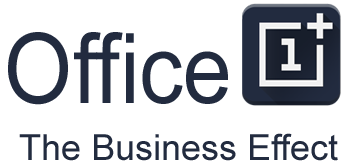Health insurance offers security and comfort to cover your health needs. With your own insurance plan, you can set up doctor’s appointments and go in for emergency care without worrying about those costs breaking the bank. Depending on your premiums and financial services, you’ll have different providers available to you and places to look for the right healthcare coverage. You may still have some costs associated with getting good medical care. This is where the banking industry and private health insurers intersect.
Between your doctor, the billing department, and your personal bank, there are a lot of steps and people involved in the financial services within your healthcare. Certain digital services like open banking can help cut out the middle man and develop third-party systems to help you afford to see certain specialists. There are plenty of ways the open banking model can affect health care and patient’s lives. Let’s take a look at just a few of the effects and how they may adjust the way you take care of your health needs.
Table of Contents
Defining Open Banking
Before you can understand any connections between the two fields, you are probably wondering what is open banking? Essentially, it is the process of using APIs to connect third-party payment services and banking transactions from your primary financial institution. Being able to access all these different transactions allows for greater customer trust and a more effective use of certain data points. This is a great solution for individuals and small businesses alike and it can be impactful for your private hospital as well.
Understand your Health Insurance in Better Ways.

If health insurance is all about paying for your medical care, then there is a strong connection with your financial services. Open banking can help you understand the analytics of your out-of-pocket costs. Whenever you start a health insurance policy, it’s important to understand exactly what you’re signing up for.
Know the hospital cover, see what specialists you can visit, understand your premium costs. It’s important to look into the extras you get based on your location. For example, health insurance Australia is going to look different in each part of the continent. Do a comparison to see which insuSet featured imagerers will hurt your bank account less and if they have flexible options like open banking.
Open Banking Acts as a Model for Open Healthcare.
One of the ways open banking is impacting the health field is through its creative ideas. These digital platforms rely on integration and application platforms being able to communicate with one another. This is how third-party financial institutions can relay information to traditional banks and other entities. As digital advances become more relevant in healthcare, many institutions are looking into models for open healthcare.
This would allow different platforms to have secured channels so doctors could understand and monitor treatment plans in a number of different ways. As open banking continues to show signs of success, it’s only natural that private systems within healthcare are testing their own eligibility for this kind of interface.
Pay Your Bills Through Hospital-Specific Entities.
Open banking allows outside organizations to use methods of payment that are outside of traditional banks. Handle transactions on your own in a different way with this type of model. If you’re looking for a private health insurance rebate or ways to manage financial data more effectively on your own terms, maybe this is the answer for you.
Open banking initiatives believe your account information should be secured while staying accessible when other entities need those details. A more public system will allow you to pay bills right through the hospital without having to worry about a ton of outside factors.

